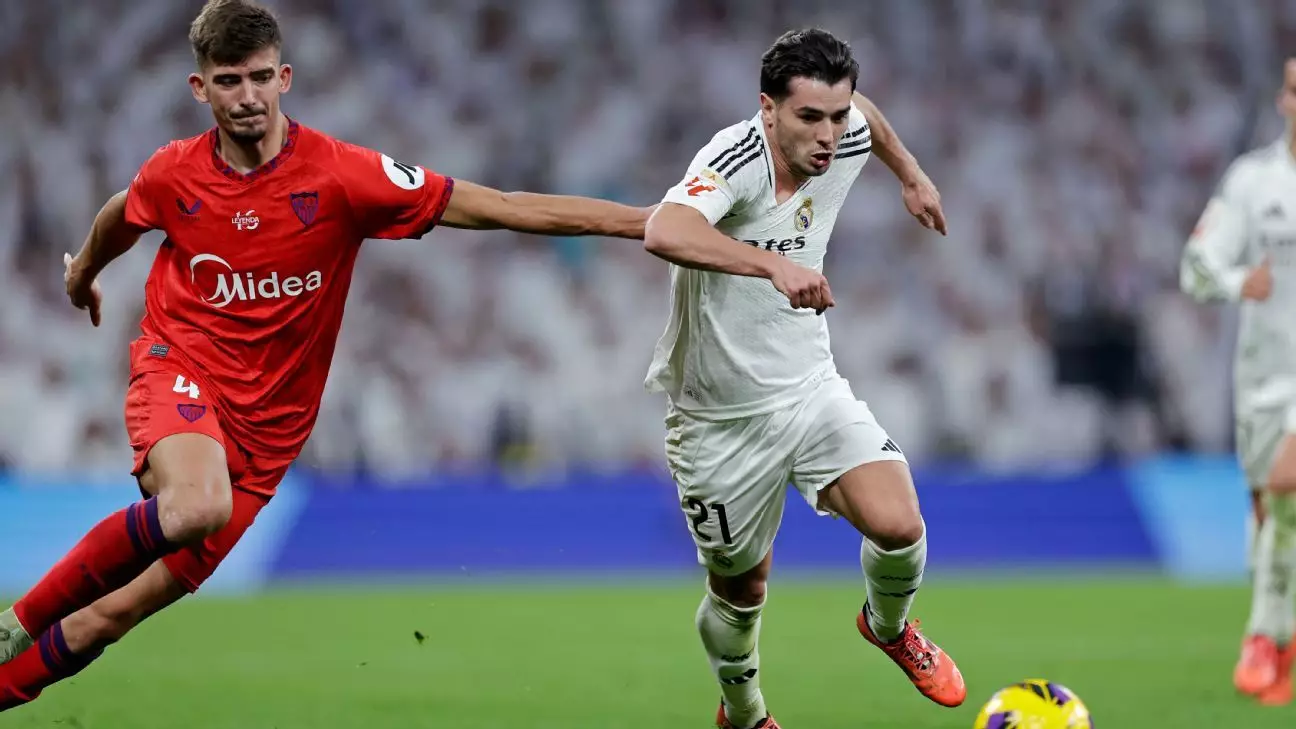In an alarming development within Spanish football, Sevilla FC defender Enrique Salas has been taken into custody by police amid accusations of engaging in match-fixing through the strategic earning of yellow cards. According to LaLiga and reports from the Spanish news agency EFE, Salas, who is just 22 years old, allegedly conspired to manipulate the outcomes of betting by deliberately seeking yellow cards—a concerning development that raises fundamental questions about the integrity of sports in an era increasingly influenced by gambling.
It has been reported that Salas intentionally sought to be booked by match officials, potentially benefiting family members and friends who may have placed bets on these occurrences. This behavior is evidenced by a notable trend: in his debut LaLiga season, he accrued ten yellow cards, seven of which were during the critical last stretch of the season. Such patterns can lead to serious implications, not just for Salas but for the broader context of competitive fairness in football.
Additionally, this season alone, Salas has received three yellow cards, compounding concerns over whether his actions are indicative of deeper-rooted issues within his team and potentially across the league. LaLiga has pledged to actively participate in any judicial investigations that arise from these serious accusations, signaling an institutional push for accountability that could reshape how issues of integrity are handled in Spanish football.
Sevilla FC has publicly acknowledged the situation, expressing their awareness of Salas’ detention and emphasizing their commitment to the ongoing judicial process. Their official statement reflects a dual stance: on one hand, they respect the legal procedures involved; on the other, they uphold the presumption of innocence for their player. This approach not only underscores the seriousness with which the club takes such allegations but also showcases the need for careful navigation through public discourse in order to maintain the club’s reputation, as well as the player’s dignity during a turbulent time.
This incident highlights a potentially pervasive issue that could exist within football, where gambling and match outcomes intersect. The growing nexus of betting on sports has already been a point of contention globally, and allegations such as those against Salas may serve as a catalyst for stricter regulations and more thorough oversight within the game.
The ramifications of this situation could extend beyond the individual case of Salas, possibly leading to an overall reevaluation of how integrity is maintained within sports. As the investigation unfolds, there will undoubtedly be increased scrutiny from fans, sponsors, and regulatory bodies, all seeking clarity on what steps will be taken to protect the authenticity of the sport they cherish.
The case of Enrique Salas represents not just a scandal involving a single player but an urgent call to action for the football community to safeguard its integrity against the encroaching influence of gambling. The chain reaction initiated by such allegations could potentially reform policies, engage stakeholders, and reshape how future instances of suspected corruption are addressed within the world of sports.

